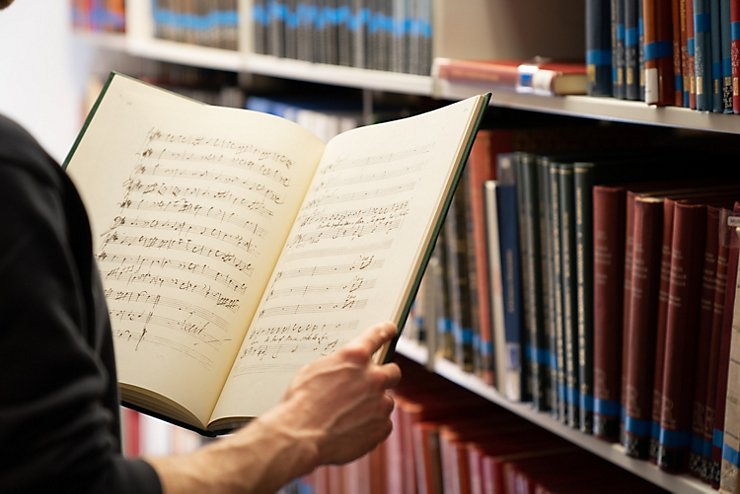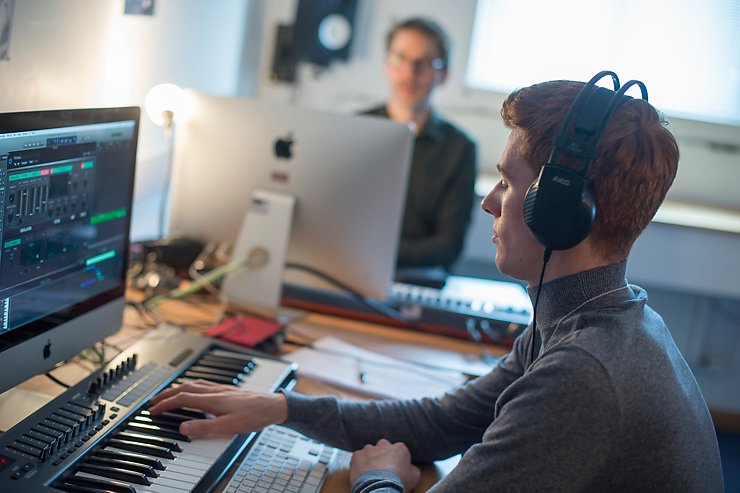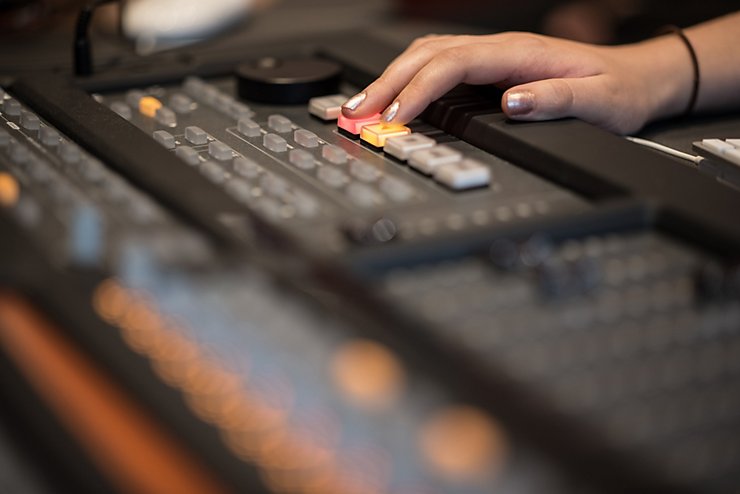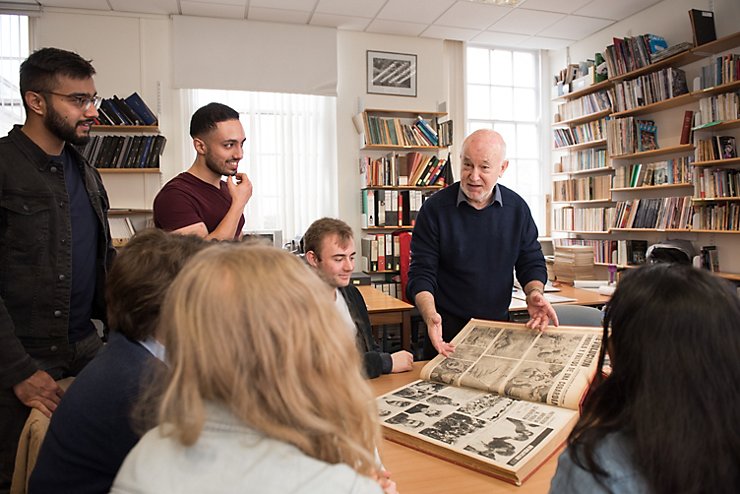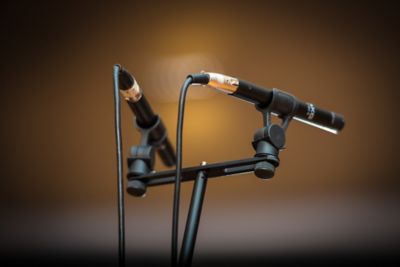

Amber
The thing I've enjoyed the most is the community that the music department has. I’ve got a really good relationship with the head of department – he's also my supervisor this semester for my masters.
When you’re able to make friends with your lecturers I think that’s a really important thing and it’s something that’s quite unique to music, as we’re a small department. It’s really lovely.
Undergraduate study
Coming to university, it’s a different skill set that you require than for secondary education. Not having someone constantly pestering you for your homework has really made me more focussed and organised. The independence is something that I’ve gained.

I feel like you can’t do really music by yourself, you have to integrate. So it’s about learning how to work with different students and different topics.
Because I was doing music and music technology I’m not much of a performer. I had to talk to a lot of performers to grasp what they wanted when I was doing my music recording and be really aware of microphone placement, not getting cables in the way, things like that. You have to know about each element of music even if you’re not doing it yourself.
Staff support
Mervyn Cooke is just an absolute angel. He’s like everyone’s music uncle! Everyone goes to him for a cup of tea and a chat. It’s really nice and he’s really supportive. He’s really good at recommending books as well!
Also, Simon Paterson was my personal tutor. I really struggled to grasp the physics side of music technology, and Simon was so patient and knew how to deliver each lecture so that it was appropriate for the different range of students.
Then there's Elizabeth Kelly, who was my composition lecturer. She helped me create the Blue Planet project. I did a project for young composers at the uni, so she helped me and she was really kind and integrated my project into her modules.

We put on this big project and raised £500 for the Attenborough Nature Reserve. There was something like 15 student composers. We re-composed the Blue Planet soundtrack and then we got music students to perform the work as a concert. We had the episode playing as we played the music underneath. It was really special.
The benefit of societies
I'm the president of Mussoc, the Music Society, currently. I was last year as well. I've been a concert manager for the wind orchestra, too. Then there's Musicality (which is the musical theatre society), I play in their pit bands for their shows.
With Mussoc, as I was president for two years, I helped to organise a tour, put on concerts, helped raise money for charity, did a lot of outreach programmes for the community, and mixed with other societies. We did an International Women’s Day showcase, so got involved with the Feminist Society and the Women’s Network and put on a showcase celebrating women in different arts. We had poetry, singer songwriters, dancing – it was a really cool showcase!
I recently got involved with The Mic music magazine and they’re really known in the industry. They get free concerts to gigs and they’re really trusted in their reviews.

I'm also involved with the radio station, URN. Myself and two other music students do a show every Monday. It’s a place for minority musicians in the industry, so we amplify their voices. We talk about music and mental health, we did a Black Lives Matter special last week, and talk about Civil Rights music. There’s so much to get involved with...
My CV is so full because of stuff I’ve learnt at uni. The society stuff, when added with my degree, is what has really improved my CV and helped me develop more of a personality and navigate through adulthood.
Choosing postgraduate study
My research is on black women in jazz and how they navigated through sexism and racism. It’s really fascinating. I knew I wanted to do a masters in my second year. I’d taken jazz music with Mervyn and was genuinely inspired by the passion he had for the topic.
I did look at other universities, but I thought I already know I’m going to get the best support from my department here. Also, by doing a research course, it's completely tailored to your own preferences.
I also chose to stay here because if I wanted to do composition I could still do composition, whereas a lot of other universities don’t offer that. If you do musicology you have to stick to musicology and often you have to stick to your specified topic. But here, if I wanted to I can easily branch out and talk about Russian classical music, which is another love of mine, and it’s still appreciated and still valued and still goes toward my masters.

I know I want to do jazz, but if I want to study more about race theory or feminism I can do that with other departments as well. I can contact other lecturers from other faculties. It’s something I feel I can only do at Nottingham as I’ve built the confidence to branch out of my department.
Looking to the future
I’m looking at the possibility of doing a PhD. After that, I’m not really sure.

Helping people is definitely the biggest drive for me. Or if I had a career where I could make smaller voices known and provide a community for people, making them feel they have a place within whatever their hobbies and interests are.
Ideally, I’d love to go down the more academic route and write books and texts on unknown jazz musicians. So women like Hazel Scott – I’m really interested in her life, she was a really big headline act throughout the 20th century then she just disappeared and there’s no information on her. I’m steering more down that music journalism route.
Amber's advice if you're considering a music degree...
- Music is a valid degree! There can be a lot of shame around the arts industry. It doesn’t matter what your degree is in, just follow your passion.
- To me, the journey that you’ve made through your degree – the life lessons that you’ve learnt, and the people that you’ve met – are more important than your degree. I’ve got two jobs now and I’ve been able to step up in those because of the skills that I’ve developed at uni.
